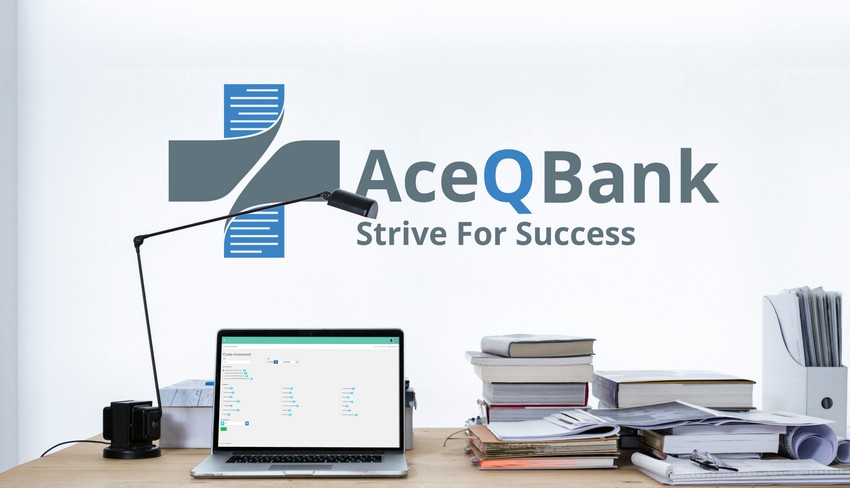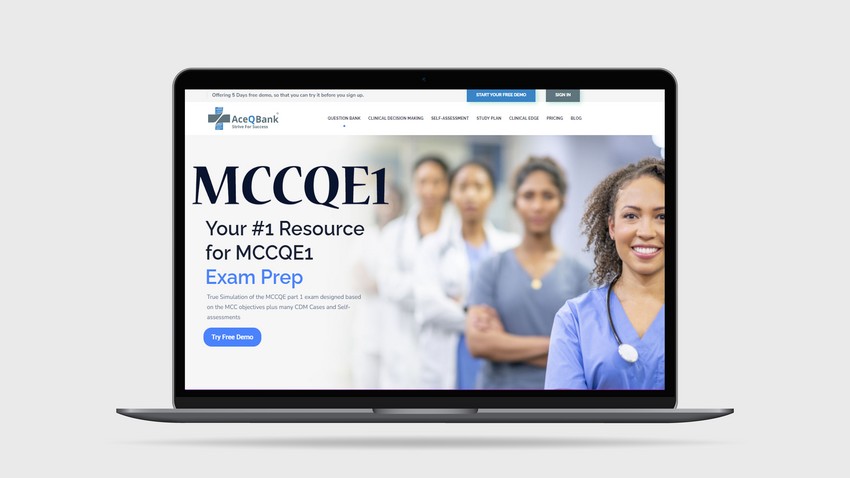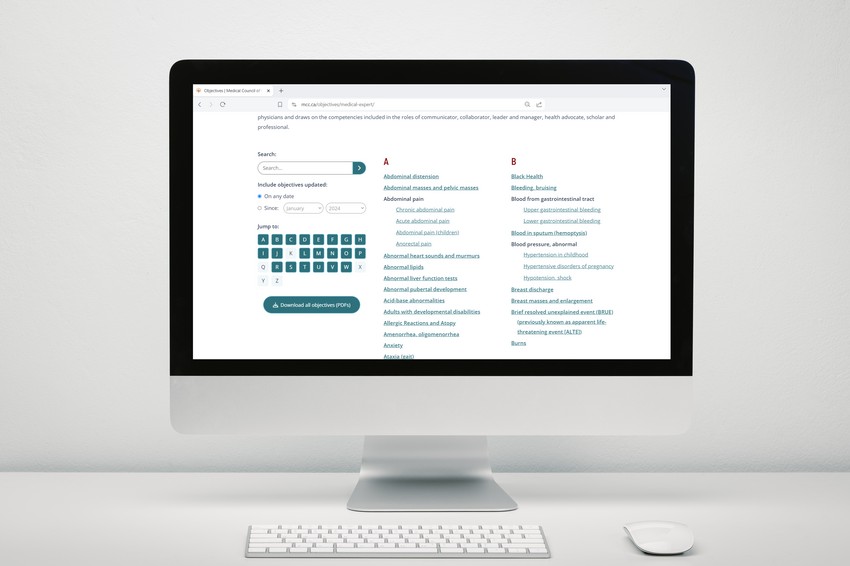MCCQE1 Study Plan and Medical License in Canada

- Brief Introduction to the MCCQE1 Study Plan
- Why You Should Have an MCCQE1 Study Plan?
- How to Create Effective Study Plan for MCCQE1?
- What does Ace QBank Offer for MCCQE1 Exam Preparation?
- How Can Ace QBank Help You Adjust Your Study Plan for MCCQE1?
- Essential Tips for the MCCQE1 Exam Preparation
- Key Takeaways
Obtaining a medical practice license in Canada indeed involves a rigorous process. The first and principal step on this journey requires crafting an MCCQE1 study plan. It’s essential you make this move at the earliest to avoid falling into the habitual trap of insufficient study time — it necessitates true commitment and meticulous effort.
The Medical Council of Canada Qualifying Examination Part I is designed to gauge your understanding of medicine and its application, an aspect vital for both Canadian medical students as well as international graduates. Thus, commencing your preparation sooner rather than later, guided by a well-organized strategy is absolutely crucial.
Your journey to pass the exam begins with recognizing the need for thorough preparation. This blog post aims to clarify the preparation process for the MCCQE Part 1. It highlights the importance of a strategic study plan for success. Delve into how early preparation can significantly increase your chances of passing and discuss strategies that have been instrumental in helping numerous candidates achieve their goals.
Brief Introduction to the MCCQE1 Study Plan
In Canada, there exist two crucial qualification exams. The first being the National Assessment Collaboration (NAC) exam, and secondly, we have the Medical Council of Canada Qualifying Examination (MCCQE) Part I. It’s well known that the MCCQE1 stands as an incredibly tough but immensely pivotal step for all medical graduates wishing to serve their skills in Canadian healthcare.
It demands a thoughtful study plan that goes beyond just absorbing vast medical knowledge. Indeed, success pivots on your ability to apply this knowledge effectively within clinical situations.

When people often mention creating a study plan for an exam. They mean allocating daily or weekly study time and breaking down study sessions into manageable blocks. However, creating an effective MCCQE1 Study Plan goes beyond the common advice of allocating daily study time and breaking down sessions into manageable blocks.
However, the MCCQE1 study plan is not just about covering the material. It’s about doing so in a way that enhances understanding, retention, and the ability to apply knowledge under exam conditions.
Here’s why planning is vital:
- Help You Identify Weaknesses
- Improves Your Time Management
- Boosts Your Confidence
- Facilitates Your Learning
- Prepares You for Exam Conditions
This exam’s clinical orientation sets it apart. It introduces a level of complexity that demands a comprehensive understanding beyond mere diagnostic and treatment capabilities. This depth sets it apart from the style of questions seen in the USMLE, where the emphasis is on initial proper management.
On the other hand, it’s crucial to recognize that while there are similarities, healthcare priorities vary significantly from one country to another. Proximity does not equate to identical healthcare systems. Canada’s healthcare priorities, shaped by its unique societal, economic, and cultural factors, require a tailored approach to the medical licensing exam. Neglecting the nuances of Canada’s healthcare system can lead to the unwelcome outcome of having to retake the exam.
It’s here that Ace QBank proves invaluable. By focusing on the specific requirements of the MCCQE1 exam, the Qbank doesn’t just prepare you for the exam. It maximizes your chances of success by enhancing your retention and boosting your exam performance.
It offers a strategic advantage by aligning your preparation with the unique aspects of Canadian healthcare. The objectives set by the Medical Council of Canada and the CanMEDS framework. Ensuring you’re not just prepared but comprehensively equipped to excel in the MCCQE1 exam.
Understanding the MCCQE1 Format
Before diving into the study strategies. It is crucial to grasp what the MCCQE1 covers. This exam assesses medical graduates’ ability to demonstrate critical medical knowledge and decision-making skills in a variety of clinical settings. The exam comprises two components:
- Multiple-choice questions (MCQs)
- Clinical decision-making (CDM) cases
A sound study plan must address both components, focusing on the integration of knowledge with clinical reasoning skills.
Note
If this is your first visit here, or if you’ve unexpectedly come across this post, I am truly sorry for the brief overview of the exam format included in our content. Nevertheless, we encourage you to delve into comprehensive details about the MCCQE part 1 exam posted in an earlier blog entry.

Why You Should Have an MCCQE1 Study Plan?
Crafting a strategic study plan for the MCCQE1 transcends mere advantage—it’s a cornerstone of triumph in this formidable examination. Such a blueprint doesn’t just outline what to learn; it illuminates the path through the thicket of medical knowledge, enabling you to spotlight areas needing fortification, hone time management skills, and mitigate stress. Moreover, it enhances retention and cultivates the confidence required to adeptly maneuver through the MCCQE1’s complexities.
The journey towards becoming a licensed physician is marked by few challenges as rigorous, demanding, and crucial as the MCCQE1. This examination stands not merely as a test but as a pivotal gateway, bridging the gap between theoretical knowledge and practical medical acumen. Recognizing the weight of this examination compels an approach of utmost seriousness and strategic foresight towards its preparation. A study plan, in this light, acts not just as a schedule but as a guiding lantern through the dense fog of medical information.
Firstly, contemplate the extensive breadth of knowledge encompassed by the MCCQE1. From the nuanced details of human anatomy to the intricate layers of pharmacological treatments, from the fine points of patient communication to the critical thinking demanded in diagnostics—the scope is as vast as medicine itself. In facing such a panorama, a structured learning strategy is not just beneficial; it’s essential.
Conversely, meticulous planning equips you for the examination by ensuring comprehension across all tested domains. This unique plan thrives on personal introspection—understanding your strengths and weaknesses, your interests, and your learning preferences.
By identifying these personal attributes, you can optimize your study time, focusing intensively on objectives or topics that present more difficulty. This emphasis is paramount in medicine, where a broad knowledge base is crucial not only for academic success but also for future patient care. Such a methodical approach to topic progression ensures that your preparation is all-encompassing, preparing you to confront the examination’s challenges head-on.
MCCQE1 Study Plan Benefits | |
Focus on Weak Areas | A study plan provides a structured approach to covering the vast objectives. It ensures that all topics are reviewed systematically, preventing any important areas from being overlooked. |
Time Management | With the extensive number of questions you need to answer, time management is key. Practice in time mode with categories that you are familiar with and try to answer a question per minute. |
Stress Management | Preparing for any high-stakes examination can be stressful. However, with strategic approach and covering the difficult categories first. You can reduce anxiety and build confidence steadily. |
Improves Retention | Regular review help reinforce previously studied material. This spaced repetition is a proven technique for enhancing memory retention, ensuring that you remember more information for longer periods. |
Builds Confidence | When you tick off and master challenging areas, you’ll build confidence in your abilities. Confidence is crucial when facing the pressures of the exam, enabling you to perform at your best. |
Boost Performance | As you progress, you will start feeling more prepared, and your confidence in tackling the exam will naturally increase. This confidence is crucial on the day of the exam and boosts your performance. |

How to Create Effective Study Plan for MCCQE1?
Crafting an effective study strategy for exams, like the MCCQE1, is more than just a task—it’s a journey toward personal and academic growth. At the heart of this journey lies the critical step of evaluating your own knowledge base. This isn’t just about recognizing what you know. It is about bravely confronting the gaps in your understanding. The landscape of knowledge required for such exams is vast, and the depth of understanding expected can seem insurmountable. Yet, by approaching this challenge with a structured and thoughtful strategy, what seems daunting becomes entirely manageable.
Understanding your weaknesses and the objective’s more challenging aspects is paramount. This isn’t about focusing on your flaws; it’s about giving yourself power by understanding yourself. Find these places so you can make a study plan that tackles them head-on. This ensures that every moment spent studying is both efficient and impactful.
One might think that starting with easier topics to build momentum would be wise. However, when it comes to conquering colossal exams like the MCCQE1 prioritizing the most challenging objectives first. It might appear counterintuitive, but this method ensures that the most difficult and time-consuming topics are tackled when your mind is freshest and your motivation at its peak. By confronting these demanding subjects early, you give yourself the luxury of time—time to delve deep, understand thoroughly, and master these topics. This approach doesn’t just enhance your knowledge; it builds a solid foundation of confidence that bolsters your entire exam preparation.
In today’s digital age, traditional study methods like textbook reading and lecture notes review remain invaluable. However, supplementing these methods with dynamic and interactive tools like question banks can revolutionize your learning experience. Question banks, especially for tough topics, offer a unique way to test your understanding in a real-exam scenario. This active form of learning reinforces your knowledge, highlights areas needing further review, and boosts your confidence in tackling complex questions.
Question banks simulate the format of the actual examination and provide immediate feedback, allowing for targeted learning.
They help identify areas of weakness and gauge progress over time. Furthermore, practicing with question banks can help improve time management skills under exam conditions, a critical aspect of success in the MCCQE1.
Let’s not forget that you need to take a fair view. Finding the right mix between studying from books and practicing questions is important. Too much of either can leave you with gaps in your knowledge or a lack of skills for using what you know. A balanced approach ensures that knowledge is solidified through textbooks while application and analysis skills are honed through practice questions. This dual focus prepares candidates not just to know the right answer but to understand why it is correct, an essential skill in medical practice.
This guide aims to help you develop effective study strategies, focusing on tackling challenging objectives first, utilizing question banks for difficult topics, and finding the right balance between practice questions and textbook study.

Tackle Challenging Objectives First in Your Study Plan
Starting with the most challenging subjects might seem counterintuitive. However, this approach has significant benefits. It starts with the most formidable categories first – those areas that seem insurmountable or where past endeavours may have met with less than satisfactory results.
The logic behind this method is grounded in practicality. By directing your focus towards the more challenging categories at the outset. You are afforded the luxury of time. It’s time to delve thoroughly into difficult subjects in order to develop a solid comprehension that will hold up under test pressure. One should not hasten this process. To truly understand, one must be patient, persistent, and steadfast in their pursuit of perfection.
Moreover, this strategy serves as an effective antidote to procrastination. The tendency to put off tasks perceived as difficult is a common pitfall for many. However, by confronting these daunting subjects head-on, you effectively remove the power they hold over you. This goes beyond simply crossing things off a list or checking boxes. It’s about connecting with the content in a meaningful way and letting the information permeate your awareness and shape your identity.

To implement this approach effectively, it begins with listing the areas where you feel least confident or where previous attempts have fallen short. For international medical graduates (IMG). You can use self-assessment to identify the areas if listing them is difficult.
Identify These are your starting points. From here, it’s crucial to break down these colossal tasks into smaller, more manageable objectives. Allocate ample time in your study schedule for each, allowing for deep engagement without the pressure of looming deadlines.
Taking down obstacles one by one not only speeds up progress but also gives you a sense of accomplishment. As you reach each small goal. You feel more confident, and what seems like an impossible task turns into a set of goals you can reach. And as confidence grows, so does the skill to handle even the hardest jobs with ease.
Crucially, this approach ensures that the less demanding topics, which require comparatively less time to master, are reserved for later in your study schedule. This sequencing keeps the momentum of your study journey high, ensuring that your engagement with the material remains consistent and your motivation undiminished.
As you move forward, remember that this path is not devoid of challenges. There will be moments of doubt, frustration, and perhaps even failure. But it is in these moments that the true value of this approach reveals itself. For it is through overcoming these obstacles that we grow stronger, more confident, and ultimately more capable.
Starting with the most challenging categories is not just a study tactic. It is important because it can greatly lower stress and boost self-esteem. It’s about transforming your greatest strength into what could otherwise be seen as a weakness.

Utilizing Question Bank to Conquer Difficult Topics
In the rigorous journey of preparing for the MCCQE1, an examination that both challenges and quantifies the medical knowledge and clinical skills of aspiring physicians in Canada. The strategic selection of study resources can significantly sway the outcome.
Among the myriad tools available to candidates, question banks emerge not merely as supplements but as fundamental components of an effective study plan. Within this context, the Ace QBank distinguishes itself not just as a repository of questions but as a beacon guiding the way toward mastery of MCC objectives and confidence in facing the exam.
The Qbank, with its comprehensive coverage across a broad spectrum of medical topics, offers more than just practice. It presents a meticulously curated collection of high-quality questions that mirror the format and challenge level of the actual exam. Each question in the question bank is a stepping stone towards deeper understanding, providing not only a test of knowledge but also an opportunity for learning.

As we ponder on the essence of preparation, it becomes evident that merely reading textbooks or attending lectures might not suffice. The application of theoretical knowledge through practical scenarios, as presented in these practice question sessions, becomes crucial. It is in this act of application that true learning is solidified, and weaknesses are transformed into strengths. Especially when delving into topics that are challenging or unfamiliar, regular engagement with these questions can illuminate concepts and elucidate misunderstandings.
Moreover, the analysis that follows each question—understanding why an answer is right or wrong—serves to deepen comprehension and aids in the retention of information. It’s a reflective process that not only enhances knowledge but also sharpens critical thinking skills, a vital asset in both examinations and clinical practice.
Beyond the mere acquisition of knowledge, the Ace QBank serves as an invaluable tool in honing test-taking strategies. Among these, time management stands out as a critical skill that can often determine success in the exam. The pace at which one can accurately answer questions under time constraints can be significantly improved through regular practice with the Qbank. It’s about developing a rhythm, a sense of timing that becomes second nature, allowing for a calm and efficient approach to what is undeniably a high-pressure situation.
As we approach the exam day. Integrating practice question sessions into our study routine should not be seen as optional but rather essential. Starting with sporadic sessions and gradually increasing their frequency as the exam draws closer allows for a progressive build-up of knowledge and skills.
Question banks are an invaluable resource when preparing for MCCQE1. They provide a practical way to apply theoretical knowledge and identify areas that need improvement. Make it a habit to regularly tackle questions from the Qbank, especially on topics you find challenging. This practice will deepen your understanding and aid in retaining information more effectively.

Balance Between Practice Questions and Studying a Textbook
Finding the right balance between practicing questions and studying from textbooks is crucial. While textbooks help you cover the medical knowledge necessary for the exam. Practicing questions will help you apply this knowledge in a practical context. Striking a balance between these two methods maintains motivation and builds confidence.
Motivation:
- Alternating between reading textbooks and answering practice questions keeps your study sessions dynamic and engaging. This variety helps in sustaining motivation over long periods of preparation.
- However, high questions and their evidence-based medicine explanations may shed light on the areas that need more attention. Referring to the textbook can help you better understand the concept.
Confidence:
- Regularly completing practice questions and seeing improvement over time boosts your confidence. It reassures you that your study plan is effective.
Preparing for the MCCQE1 requires a strategic approach that includes tackling difficult topics head-on. Utilizing question banks effectively and maintaining a healthy balance between textbook study and practice questions.
You need to incorporate both elements into your study plan. Perhaps start with a textbook session to cover new material, followed by practice questions to consolidate your learning. Adjust the ratio as you progress, perhaps increasing the number of practice questions as the exam date approaches to focus on application and recall under exam conditions.
By implementing these strategies. You Will set yourself up for success, moving closer to achieving your goal of passing the exam.
It is crucial to bear in mind that perseverance and a carefully crafted study schedule are essential for conquering this demanding obstacle on your journey toward becoming a certified medical professional in Canada.

What does Ace QBank Offer for MCCQE1 Exam Preparation?
The MCCQE1 is a challenging exam that requires deep understanding of the MCC objectives and how to use this knowledge to select the correct answer. It is here that Ace QBank, with its meticulously designed resources, steps in to provide invaluable support.
By closely aligning with the objectives laid out by the Medical Council of Canada. It establishes a solid foundation upon which medical graduates can build their success. In this section, we will delve into what it offers for MCCQE1 exam preparation, highlighting its features, products, and the unique advantages it brings to your preparation journey.

The Best Canadian Question Bank for MCCQE1
Ace QBank stands apart with its extensive repository of questions and resources tailored specifically for the MCCQE1 exam. Designed based on the MCC objectives, the Qbank covers all topics you need to know. It helps you learn more about what you already know and improve on weaker areas.
But how does the question bank do all that? Through three products and tones of unique features that are designed to facilitate the MCC objectives coverage, enhance retention, and boost performance on exam day. Here are the products:
MCCQE1 Question Bank
The question bank contains more than 2700 questions. Questions are designed based on the MCC objectives in accordance with the CanMEDs framework.
The question bank includes high-value questions designed to replicate the format of the real exam. These questions are carefully created to encourage analytical thinking and problem-solving skills. Such an immersive approach ensures robust recall of essential facts and application of knowledge under the pressure of exam conditions.
CDM Cases
In addition to the question bank, it offers more than 140 Clinical Decision-Making (CDM) cases. These cases are meticulously designed to encompass the essential medical knowledge and decision-making abilities necessary for this exam. By working through these cases, you will develop the necessary clinical reasoning skills required to excel in the MCCQE1.
Self-Assessments
The question bank also provides two self-assessments that align with the MCCQE1 format. These assessments evaluate your readiness and identify areas that need further improvement.
The best part about the self-assessments is that the questions are different from the main question bank. This is a deliberate attempt to accurately assess your readiness for the exam.
The feedback from assessments enables you to gauge your performance, track your progress, and refine your study plan accordingly, ensuring optimal results.

What Sets Ace QBank Apart for MCCQE Part 1?
In addition to providing an extensive question bank that boasts a high yield, top-notch CDM cases, and self-assessments designed to measure one’s progress accurately. The platform distinguishes itself through a suite of unique features meticulously crafted to enhance the exam preparation process significantly.
It’s these distinct elements, woven into the very fabric of the platform, that not only enrich the study experience but also elevate it to a level of unparalleled excellence. Let us embark upon a detailed exploration of these features. Understanding how each has been thoughtfully integrated to aid in the seamless navigation through the complexities of exam preparation.

Tailored to MCC Objectives
The questions and clinical cases presented within the question bank are meticulously crafted. Taking their foundation from the objectives delineated by the Medical Council of Canada. This particular feature that sets the qbank apart is its steadfast commitment to the MCC’s well-defined objectives. By directing a sharp focus toward these objectives, the question bank ensures that each medical student is thoroughly prepared for the specific knowledge areas scrutinised in the examination.
This tailored methodology is not just about covering the entire objectives list; it is about strategically optimizing your study time. It ensures that every moment you spend with the material is targeted and efficient, enhancing your grasp on the subjects most likely to be examined. Such a focused approach significantly increases your likelihood of success.
The question bank, with its unwavering dedication to the MCC objectives. Represents not just a tool for exam preparation, but a partner in your journey towards achieving excellence in the medical field.
Customizable Study Modes
The platform offers two ways to study: Time mode and tutor mode. This lets learners plan their study according to their needs and schedules. It helps focus on weak areas and allows setting a pace that suits each person’s way of learning. The goal is to move beyond the usual one-way fits all approach to learning. The Qbank recognizes that good study results come from aligning the learning process with personal study plans and life situations.
Therefore, whether you thrive under the guidance of a tutor or prefer the time mode study, the platform stands ready to support you. It’s crafted to ensure that your educational voyage is not just a journey toward academic excellence but a testament to personalized learning. Where every challenge is an opportunity for growth, and every lesson is tailored to your stride.
This feature is more than just a tool. It’s about making sure that your preparation is as effective and efficient as possible, by recognizing and embracing the unique individual you are.

Detailed Explanations
Understanding is paramount when it comes to excelling in examinations, and the Question Bank is meticulously engineered to bolster comprehension through its detailed explanations and vibrant illustrations that accompany each question. We shall delve deeper into the nuances of these illustrations further into our discussion, exploring the intricate details and the profound impact they have on enhancing learning.
However, it’s imperative to underscore that the explanations provided within the Qbank are anchored firmly in evidence-based medicine. These aren’t merely answers to questions; they are carefully crafted to offer a more profound comprehension of the underlying concepts. This approach doesn’t just skim the surface but aims to lay a robust foundation essential for the effective application of knowledge across a multitude of medical scenarios.
Evidence-based medicine (EBM) represents a critical approach in the medical field. Focusing on the use of current, well-conducted research as the foundation for the explanation. This methodology is not just about accumulating facts; it’s geared towards understanding the underlying principles and mechanisms. It ensures that medical graduates and students are equipped not merely with information but with the ability to apply this knowledge effectively in a variety of contexts, from clinical practice to complex problem-solving in healthcare.
The Question Bank embodies more than a conventional resource for examination preparation. It is a holistic educational platform that deeply integrates the ethos of EBM into its structure. Each item within the Qbank is crafted to do more than provide a correct answer; it aims to offer a comprehensive learning experience. This is achieved by grounding explanations in evidence-based research, ensuring that every piece of information serves as both an answer and an insightful lesson.
This educational strategy is meticulously designed to not only facilitate immediate understanding but also to promote the durable assimilation and practical application of knowledge.
As we progress in the blog, we will discuss the illustrations that accompany the explanations. These visuals are essential for connecting theoretical knowledge with practical use. They make complex information easier to understand by bringing concepts to life. The illustrations are powerful because they turn abstract medical ideas into visual representations that learners can connect with more deeply.

Enhanced Retention
The Qbank employs innovative techniques to enhance information retention, reinforce your understanding and boost performance. It uses hundreds of summary tables and flow charts and custom illustrations to provide visual aids.
Visual aids are really useful tools in learning. They help by showing information in a way that looks good and is easy to understand. For medical students, who have to learn a lot of detailed information and complicated ideas, flow charts and pictures are very helpful. They not only make the material more engaging but also aid in memory retention and recall, ensuring that crucial information is at the forefront when needed.
The complexity of medical information can be daunting. However, employing flow charts to dissect and represent these intricate processes can significantly demystify them. For medical students, understanding is key. Flow charts streamline this understanding, making it easier to grasp and remember the connections and functions that are fundamental to medicine.
On the other hand, summary tables are a strategic approach to learning. Allowing students to concentrate on the most critical aspects of their studies. These concise compilations of key points eliminate the need to sift through extensive notes or dense texts, saving precious time and maintaining focus on what truly matters. Moreover, these tools foster logical thinking by clearly illustrating the relationships and hierarchies among different concepts. This not only strengthens your grasp of the material but also enhances your ability to recall this information when it counts the most.
Altogether, they enhance knowledge retention in the following ways:
- Visual the concepts
- Simplifying complex information
- Highlight key points
- Facilitate Logical Thinking
At this point, you may ask, “But how can they be involved in and assist in creating a study plan for the MCCQE Part 1?”
Summary tables, flow charts, and custom illustrations are pivotal components of an effective study plan. Each offers unique contributions to the learning process. Summary tables facilitate quick revision and focus on key information, flow charts elucidate complex processes and relationships, and custom illustrations make abstract concepts tangible.
They help you understand, remember, and use what you learn by showing information in a way that’s easy to see and interesting. Adding these pictures and diagrams to your study routine helps you sort out and go over what you’ve learned.

Incorrect Answers Revision
One of the most invaluable assets on the Ace QBank platform is the innovative feature that allows you to curate a collection of question blocks from the questions you’ve previously answered incorrectly. Picture this as a golden opportunity for redemption, a chance to transform your vulnerabilities into formidable strengths.
Imagine, if you will, that each question in these blocks acts as a mirror, reflecting not just an incorrect answer but unveiling a deeper, more fundamental gap in your understanding of the critical concepts at play. It is within the confines of these question blocks that a pattern of errors begins to emerge, painting a vivid picture of the areas where your comprehension may be lacking, where the foundation of your knowledge shows cracks that need mending.
This feature is really about looking at yourself and growing. It tells you, as a candidate who wants to pass the exam, to stop for a bit, think, and really get into the hard parts of your study. It’s asking you to understand your work better, so when you have to face tough questions in an exam—or even in your future job in medicine—you’ll be ready and sure of what you know.
Learning this way, where making mistakes is part of getting better, is very important in medicine. In this field, you can’t afford many errors because it’s all very serious. Being able to see where you need to improve and then working on it might make you stand out in a profession that really values being the best.
So, really use this feature because it’s more than just another try; it’s a guide for getting better personally and professionally. It’s a plan for turning difficulties into something you can stand on, helping you have a successful career in medicine. This isn’t just about passing a test. It is about getting ready to save lives and make a difference.
Preparing for the exam is a daunting journey, but not with Ace QBank. It becomes a structured, strategic, and more manageable process. Ace QBank, with its extensive question bank, CDM case studies, and self-assessments, is the ultimate resource to support your MCCQE1 exam preparation.
Through its comprehensive resources, customizable study plans, custom illustrations, and evidenced-based medicine explanations, the Qbnak aligns with your ultimate goal: PASSING THE MCCQE1 EXAM.

How Can Ace QBank Help You Adjust Your Study Plan for MCCQE1?
The meticulously designed question bank stands as a cornerstone for those preparing for the MCCQE1 examination, offering an unparalleled blend of high-yield questions and top-notch CDM cases. This unique combination not only covers the MCC objectives but also delves deeply into the type of critical thinking and clinical decision-making skills essential for success.
At this point, it’s natural to wonder about the practical impact of these features on your study plan. And, ultimately, on your exam performance. The essence of this question bank’s effectiveness lies in its bespoke suite of tools tailored to enhance your preparation journey.
Ace QBank is not just a collection of practice questions. It is a dynamic platform designed to refine your study strategy through detailed performance analytics and personalized feedback. This approach allows you to identify strengths and weaknesses in your knowledge base. Enabling targeted study that focuses your efforts where they are needed most.
With the question bank, you’re not merely practicing questions. You are engaging in a structured preparation that mirrors the complexity and scope of the actual exam. In essence, it offers more than just exam preparation; it provides a roadmap to success tailored to the unique needs of each medical graduate.
Let us delve deeper into the myriad ways in which the Qbank stands ready to bolster your exam preparation:
- Covering all categories
- Adjusting your study plan according to your needs
- Re-adjusting your plan with incorrectly answered questions
- Assessing progress regularly
Covering all categories
The question bank covers all 21 categories stipulated in the MCCQE part 1 blueprint. This comprehensive scope guarantees that users can thoroughly evaluate their knowledge across the entire spectrum of medical disciplines. This presents an unparalleled opportunity for aspiring physicians to discern their areas of proficiency and those requiring further attention.
This deep dive into the myriad topics covered by the MCCQE1 allows for the development of a robust and well-rounded study strategy. Whether you find your strengths lie in the complex world of internal medicine or the delicate nuances of family medicine, Ace QBank is there to guide you through your preparatory journey. Its design is not merely to test but to enlighten, offering insights into every conceivable subject area that a candidate might encounter in the examination.
The platform is dedicated to not just assessing but inspiring its users, facilitating a journey towards mastery in medicine. It is an essential resource for those who strive to not only meet but exceed the standards of the MCCQE1.
Adjusting your study plan according to your needs
The QBank offers two distinct study modes: Time and Tutor mode.
- Time mode is crafted to enhance your time management skills, simulating the actual exam conditions. This mode helps you to get accustomed to the pressure of answering questions within a specific timeframe, a crucial skill for the real exam.
- Tutor mode, on the other hand, allows for a more relaxed pace where you can focus on understanding the rationale behind each question. This mode is particularly beneficial for covering challenging categories, as it provides immediate feedback and explanations, helping to solidify your knowledge.
These modes enable you to tailor your study approach based on your personal needs and the areas you find most challenging.
Re-adjusting your plan with incorrectly answered questions
One standout feature of the question bank is its function that helps you focus on questions you’ve previously answered incorrectly. This is especially important, for those gearing up for the exam. With a huge material to cover, it’s easy to feel overwhelmed and miss areas where we need improvement. This feature serves as a companion on this journey.
Concentrating on questions you got wrong not tests your memory. Also aids in learning. It prompts you to revisit topics that may have been unclear before strengthening your knowledge where it matters most. Tackling your weaker areas methodically ensures an understanding across all objectives than just scratching the surface.
For individuals preparing for a demanding exam that requires proficiency this feature is priceless. It changes preparation from intimidating to manageable, helping to turn weaknesses into strengths. By investing time in these sections you gradually gain confidence, in your abilities.
Furthermore taking this targeted approach helps you feel a sense of progress and accomplishment. Every correct answer you provide during the review process represents a win. Moving you closer, to mastering the subject. These instances of overcoming challenges that were contribute to a greater feeling of readiness and resilience.
Essentially the emphasis on addressing responses in the question bank serves not to correct errors but also to equip you with the knowledge and confidence necessary for success. As you progress through your exam preparation keep in mind that this feature is more than a tool—it’s a companion on your journey, toward achievement ensuring that you are well prepared and capable of facing any obstacles that may arise.
Assess your progress
Preparing for the MCCQE Part 1 exam marks a milestone in your journey. It requires dedication, persistence and a thoughtful study approach. Feeling well prepared is crucial, for facing the exam. A key strategy to ensure you are on the path is to engage in self assessment.
The self assessment tools provided by the Qbank are tailored to assist you in this process. These tools do more than test your knowledge; they offer a way to gauge your exam readiness. By utilizing these assessments you gain insights into how you are learning, identifying both your strengths and areas that may require further focus.
Navigating the preparation, for such an exam can feel daunting at times. The task of covering amounts of content and mastering a range of topics can be overwhelming. However being able to track your progress using these self assessment tools can be incredibly empowering. They do not show where you currently stand but highlight how far you have come, providing a motivational boost just when you need it.
Moreover these assessments serve as a feedback tool. They assist in pinpointing which study methods are proving effective and where adjustments could lead to outcomes.
The self assessment tools in the Qbank not help you gauge your readiness but also serve as a roadmap for learning and progress. They empower you to steer your learning journey ensuring that when exam day comes you can walk into the testing room with confidence knowing that you’ve put in every effort to get ready.

Essential Tips for the MCCQE1 Exam Preparation
The exam challenges you to exhibit your critical thinking, problem-solving, and decision-making capabilities under the unique constraint of time pressure. This aspect of time pressure is crucial and merits special attention.
Central to the concept of limited time is the premise that information that is both well-known and well-understood will be swiftly recalled, assisting the candidate in not only deciphering the clinical clues dispersed throughout the question stem in a brief timeframe but also in selecting the correct option from among all those provided.
This approach effectively identifies candidates who possess not only robust medical knowledge but also the ability to apply this knowledge in practical scenarios.
It’s important to acknowledge that while some individuals may have extensive knowledge, they might struggle under the constraint of time pressure. However, the encouraging news is that with dedicated practice. It is possible to significantly improve your performance under such conditions.
In terms of preparing for the MCCQE1 exam effectively. I recommend adopting a dual-focused strategy. One that enhances your medical knowledge and another that hones your test-taking strategies, with a particular emphasis on time management. This balanced approach will not only solidify your understanding of the necessary content but also equip you with the skills to navigate the pressures of the exam effectively, thereby increasing your chances of success.
One cannot overstate the importance of Sleep and Revision in this preparation journey:
The Transformative Power of Sleep:
The value of restorative sleep can often be overlooked. This is often not intentional. Drinking too much coffee or pressure of a passing exam with the highest score. These are often the common contributing factors to sleep disturbance.
Yet, it’s during these precious hours of slumber that the magic of memory consolidation occurs. It is a time when the brain meticulously organizes and secures the vast array of medical knowledge acquired during the day, making it accessible for future recall. Ensuring a regimen that includes ample, quality sleep is not just beneficial. It is essential for maintaining mental clarity and readiness for the challenges that lie ahead on exam day.
The Discipline of Consistent Revision:
There is a high sheer volume of the MCC objectives that need to be mastered for the exam. However, the key to surmounting this mountain of information lies in consistent and systematic revision.
It is not enough to simply absorb information. You must integrate this knowledge into the fabric of their understanding through regular review sessions. This disciplined approach ensures that critical information is not just memorized but becomes a part of your intellectual arsenal, ready to be deployed with confidence when the moment demands.
Moreover, the critical strategy of Practicing in Time Mode cannot be understated:
Cultivating an Intuitive Sense of Timing:
The battleground of the MCCQE1 is not only a test of knowledge but also a race against time. Mastery over the material is only part of the equation; being able to navigate through questions with precision and speed is what separates those who merely know from those who excel. Practicing questions with a stringent one-minute limit is a rigorous but effective method to develop this crucial skill. It trains the mind to process information rapidly and make decisions swiftly, ensuring that candidates can maintain a steady pace throughout the exam without succumbing to the pressure of the ticking clock.
Navigating Through Questions with Precision:
The practice of answering questions within a defined timeframe teaches more than just speed; it instils a discipline of reading questions and options thoroughly yet efficiently on the first pass. This strategy is invaluable in avoiding the pitfalls of misunderstanding or misinterpreting questions due to hasty reading, thereby reducing the need for time-consuming re-reads.
Achieving a Steady Exam Pace:
The design of preparation tools like Ace QBank, which simulates real-exam conditions by imposing strict time limits on each question, is ingeniously crafted to highlight the essence of time management. Adhering to this disciplined approach during practice sessions ensures that candidates learn not to dwell excessively on challenging questions, thereby avoiding the detrimental outcome of leaving questions unanswered due to misallocated time. This skill is crucial for maximizing one’s score and ensuring that every possible point is captured.
In the end, medical knowledge forms the cornerstone of preparation for the MCCQE1. However, embracing a holistic approach that includes strategic test-taking practices, particularly around time management, is indispensable.
On the other hand, adequate sleep and consistent revision are necessary during preparation. You will equip yourself not just with knowledge but with the confidence and skills necessary to excel in your MCCQE1 examination.
Level up your exam success with Ace Qbank!
Elevate your exam performance to new heights, and experience unparalleled quality for free with our demo account today!
Key takeaways
Getting ready for the MCCQE Part 1 exam necessitates a strong understanding of medical expertise along with effective test-taking tactics. The exam tests your ability to recall essential details and apply medical knowledge. It’s important to study both the theory and practice how to take the test effectively.
Ace QBank is a great tool for those getting ready for the MCCQE1. It offers a large selection of multiple-choice questions and Clinical Decision-Making (CDM) cases, all built to match the goals set by the Medical Council of Canada. This means it covers all the topics you need to know. What’s really helpful about Qbank is that it not only helps you learn but also improves how you take tests. It has special features designed to help you feel more confident and accurate when you sit for the exam.
When getting ready for the exam, making a detailed study plan is very important. You want to understand the material well and get better at taking the exam under pressure. You should only take the exam when you’re sure you’re ready. Both in terms of knowing your stuff and being able to take the test well. It’s advisable to strive to pass the exam on your initial attempt to prevent the worry and expense of having to take it again.


